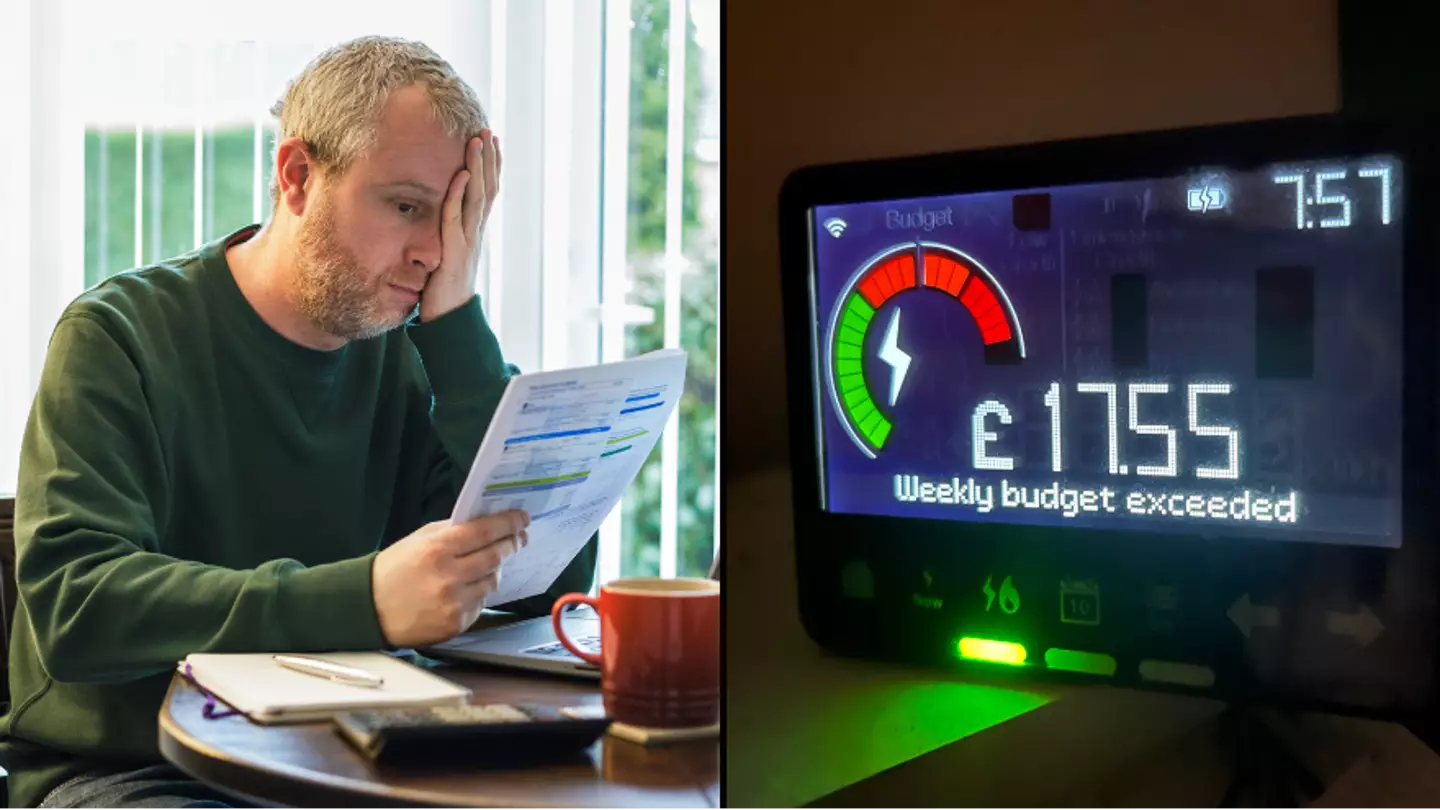
As we make our way through the final days of summer and embrace the autumnal season thoughts once again turn to colder days and times when many households will have to stick the heating back on.
One of the major factors in determining what you pay for your energy bills is the price cap set out by regulator Ofgem, with another announcement due this Friday (25 August).
The current price cap sits at £2,074, that is to say that an average household getting gas and electricity from the same provider and paying via direct debit would expect to pay that much.
Tomorrow's announcement is forecast to bring the cap down to an average UK household paying £1,925 for their annual energy bills which sounds like it'll save Brits money, but new research warns that millions will actually end up paying more.
Advert

According to the Resolution Foundation's latest study, over a third of households in England will face higher energy bills this winter than they did last year, with the poorest households more exposed to this as 47 percent of them are predicted to see bills increase.
Last winter, the average UK household's energy bills would have cost them £2,100 per year, with the government's Energy Price Guarantee standing at £2,500 and combined with their £400 support for households.
While the cap dropping to £1,925 sounds like it'll push people's energy bills down beyond last winter's prices, and it will for most households, there are around 7.2 million households that would expect to pay more.
The price per unit of energy is going to fall but conversely the daily standing charge is going to go up, while the government's £400 energy support scheme will not be repeated.

That means that households which consume the most energy, which tend to be the more affluent homes, will see the biggest saving as the cost of using energy falls.
Research from the Resolution Foundation estimates that about one in eight households in England, that is around 2.7 million homes, can expect to see their energy bills rise by £100 or more this winter than last year.
Among the poorest 10 percent of households in the country almost a quarter (24 percent) are predicted to pay £100 or more this year than last.
The foundation warns that there are 2.3 million families in the poorest fifth of households who don't receive benefits and are unlikely to be eligible for the government's cost of living payments, and predicts they will be hardest hit by the crisis as they will get no help.
This is particularly concerning when combined with the results of a recent Which? survey that point towards around 13 million households in the UK, particularly lower income ones, not switching their heating on during cold winter weather to avoid paying higher energy bills.

"Ofgem is set to announce that the typical household energy bill will fall this winter, but more than one-in-three households across England will be shocked to discover that their energy bills could actually be higher this winter than last winter," said the foundation's senior economist Jonathan Marshall of the results of the Resolution Foundation study.
"This increase will be particularly acute for England’s poorest families, a quarter of whom will spend at least £100 more on energy bills this winter compared to last year.
“With these energy bill increases coming on top of a prolonged period of fast-rising food and housing costs, the cost of living squeeze is far from over.
"And, although Government schemes have improved their targeting of support throughout the crisis to those most in need, significant gaps remain which should be urgently addressed to help the most vulnerable get through the challenging months ahead.
“In the longer term, the Government needs to reduce the UK’s dependency on gas, and improve the state of our home insulation, to prevent the winter energy crisis from becoming an annual occurrence.”
Topics: Money, News, UK News, Cost of Living